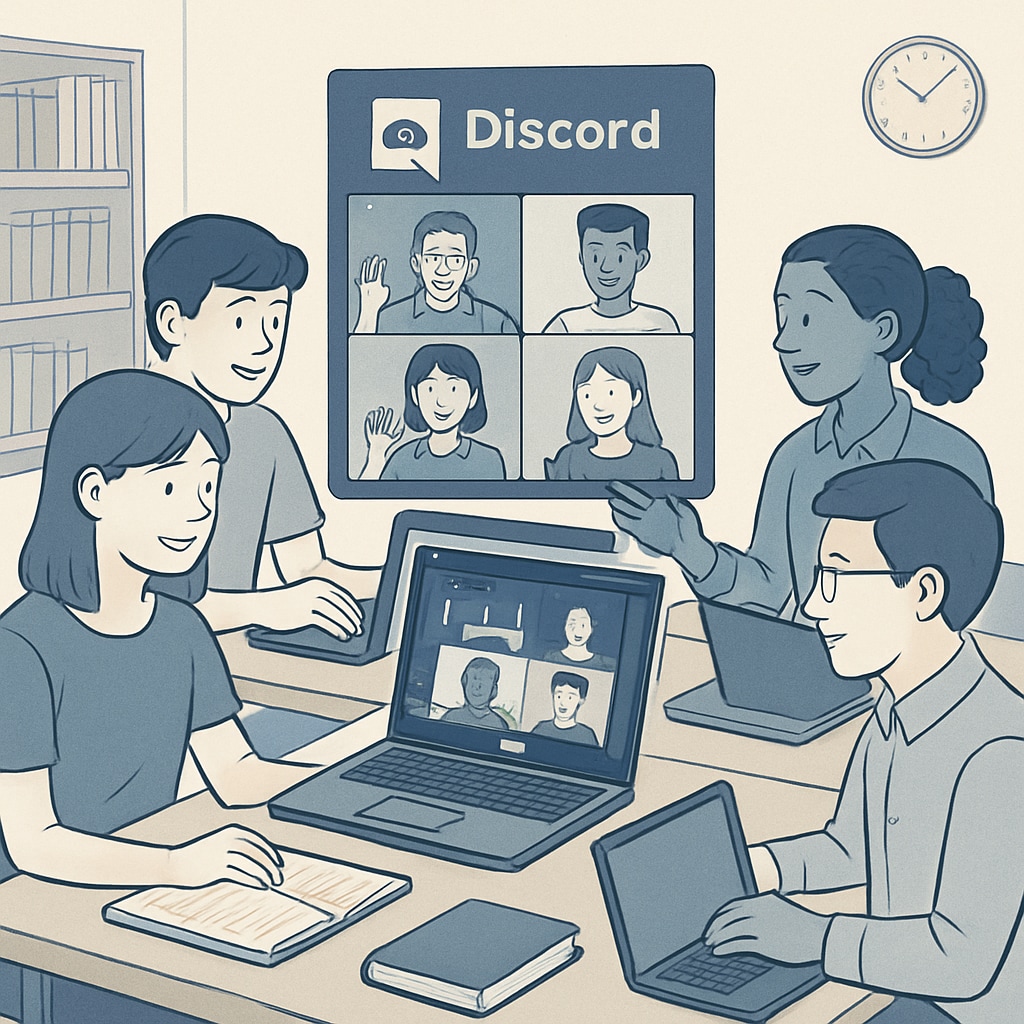In today’s education landscape, tools like study groups, Discord, and the University of Houston’s resources have opened new doors for collaborative learning. These tools and communities are not just about sharing notes—they represent a transformative way to overcome academic challenges and develop core 21st-century skills like critical thinking, communication, and teamwork. If you’re a K12 student or a university learner, understanding how to locate and utilize these learning communities can significantly enhance your academic experience and personal growth.
What Are Learning Communities and Why Do They Matter?
Learning communities, such as study groups, are a collective of individuals who come together to share knowledge, ideas, and strategies. These communities are particularly effective in fostering peer-to-peer interaction, which research has shown to improve understanding and retention of material. For instance, a well-organized study group can help students break down complex topics, prepare for exams, and even reduce the stress associated with academic pressure.
Moreover, platforms like Discord have revolutionized the way these communities operate. Originally designed as a communication tool for gamers, Discord now serves as a hub for educational collaboration. It allows users to create dedicated servers where students can discuss topics, share resources, and host virtual meetings. This flexibility makes it an ideal platform for students at institutions like the University of Houston, where diverse student populations can connect and learn together despite their busy schedules.

How to Build and Leverage Study Groups at the University of Houston
Creating or joining a study group at the University of Houston is easier than you might think. Here’s a step-by-step guide to get started:
- Identify Your Goals: Are you aiming to improve your understanding of a specific subject, or do you need general academic support? Define your objectives before forming a group.
- Find Like-Minded Peers: Look for classmates who share similar goals. You can do this by reaching out during classes, joining university forums, or utilizing online platforms like Discord or campus boards.
- Set Clear Expectations: Decide on a regular meeting schedule, topics to cover, and the group’s rules for participation. Consistency is key to maintaining a productive group.
- Use Technology: Utilize tools like Discord to organize virtual meetings, share files, and keep everyone connected. Discord’s voice channels and screen-sharing features are particularly useful for collaborative study sessions.
- Leverage University Resources: The University of Houston offers various resources such as tutoring centers, libraries, and workshops that can complement your study group efforts.
By taking these steps, you can create a supportive environment where both academic and personal growth are prioritized.

Maximizing the Impact of Discord for Collaborative Learning
Discord has become a popular tool for students around the world, and its features make it particularly well-suited for collaborative learning. Here are some tips to get the most out of Discord for your study group:
- Create Dedicated Channels: Divide your server into channels based on topics or subjects. This helps keep discussions organized and ensures that members can easily find what they need.
- Use Bots to Automate Tasks: Bots can help with scheduling, reminders, and even creating quizzes for your group. This added functionality can save time and make your sessions more interactive.
- Host Virtual Study Sessions: Use Discord’s voice and video channels to conduct live study sessions. Screen sharing is particularly helpful when working on group projects or reviewing complex materials together.
- Invite Experts: Leverage the global nature of Discord by inviting guest speakers or alumni to share insights and experiences with your group.
By integrating Discord into your learning routine, you can create a dynamic and flexible environment that accommodates different learning styles and schedules.
The Long-Term Benefits of Joining Learning Communities
Being part of a learning community offers advantages that extend far beyond academics. For example:
- Networking Opportunities: Study groups often lead to lasting friendships and professional connections, especially in a diverse university setting like the University of Houston.
- Development of Soft Skills: Collaborating with peers helps build essential skills like communication, problem-solving, and leadership.
- Increased Motivation: Being part of a group creates a sense of accountability, which can help you stay motivated and focused on your goals.
These benefits align closely with the demands of the modern workforce, where teamwork and adaptability are highly valued.
In conclusion, study groups, Discord, and the resources available at institutions like the University of Houston offer a powerful combination for academic and personal development. By actively participating in these communities, students can harness collective intelligence, overcome challenges, and prepare for success in the 21st century.
Readability guidance: Short paragraphs, clear transitions, and bullet points have been used to ensure the article is easy to follow. Active voice and simple language dominate, making the content accessible to a broad audience.


